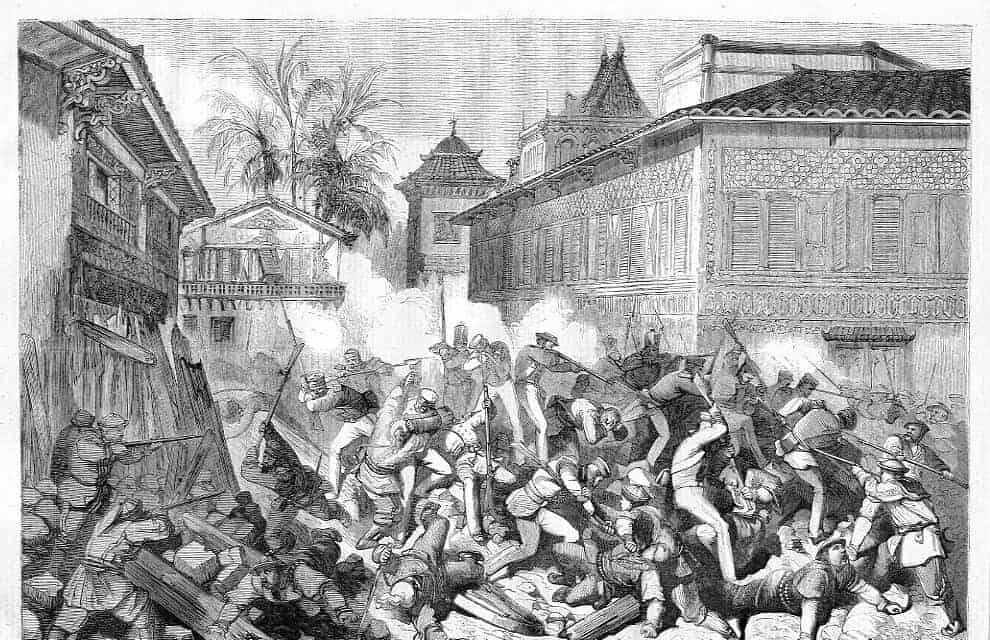In the 19th century the British Empire, through the Royal Navy and the military wing of the East India Company, fought two wars to force Imperial China to accept the illegal opium trade. Britain forced China to make opium legal within its empire while keeping opium illegal in Great Britain. It also punished Chinese impertinence in attempting to protect the well-being of Chinese citizens by seizing territory and imposing trade laws. The opium wars devastated the Chinese economy and led to massive addiction among the Chinese people, while they ensured Chinese silver entered British coffers, further weakening the Qing Dynasty in China.

A modern-day equivalent might be the governments of Colombia and Peru forcing the United States to accept the illegal trade in cocaine and allowing Colombian and Peruvian merchants to sell it in American cities openly, with the cashflow leaving the United States for their own treasuries, and the city of Miami becoming a port under their control. Yes, that is farfetched, but it is equivalent to what happened during the period of Chinese history known as the Opium Wars. Here is how it happened, during the period of history which was known as the Pax Britannica.
1. The Qing Dynasty expanded China’s Empire, but isolated it from the west

The Qing Dynasty of Manchuria brought the lands of Tibet into the Chinese Empire, conquered the lands of the Uyghurs in what became Xinjiang, and the island of Taiwan. Within the borders of the Chinese Empire trade was bustling by the beginning of the 18th century, and it grew throughout, with trading centers along the rivers and internal roads. Foreign ships were banned, the Qing denied access to foreign diplomats, with the exception of the port of Canton. Trade was allowed in a district of the city of Canton (Guangzhou) known as the 13 Factories, with Chinese goods traded for silver.
Britain’s powerful East India Company held a monopoly on trade with the Chinese, as well as a monopoly on the tea trade to Britain. Tea from China, as well as Chinese silks and porcelain, departed from Canton, paid for by British silver. The East India Company didn’t like trading hard specie – always in short supply – for Chinese goods, and they also needed a market for the opium produced in the company-owned territories in India. By the middle of the 18th century, ships from the East India Company were smuggling opium – used in some traditional Chinese medicines – to China, being paid in silver, in effect recouping the coinage paid to the Chinese for other goods.

